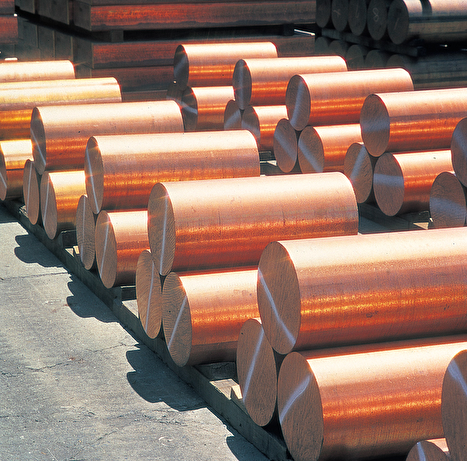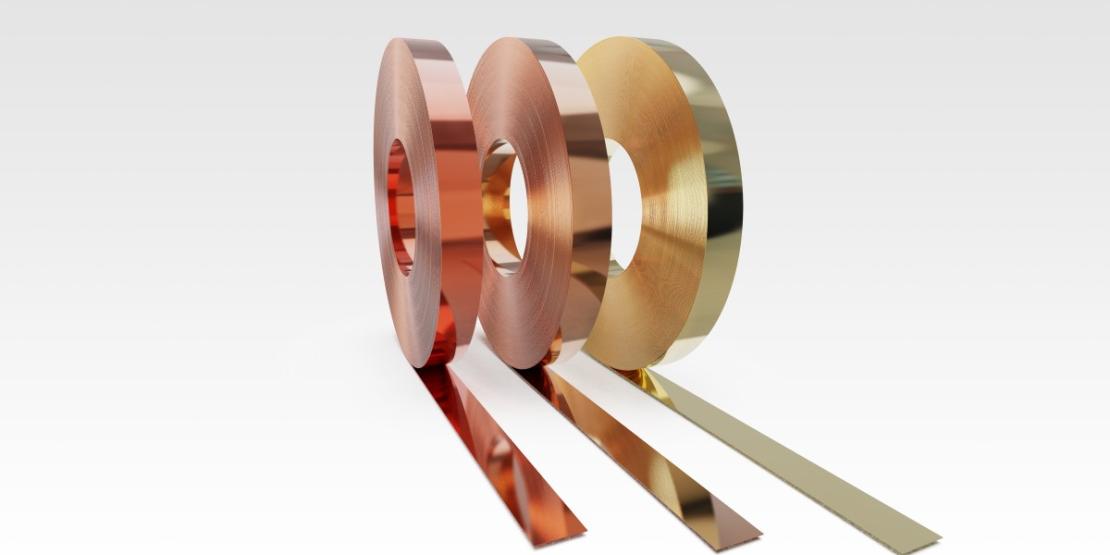Checking Out the Diverse Applications of Copper Products in Modern Industries
Copper products have actually established themselves as essential parts across a myriad of modern-day markets, primarily as a result of their exceptional conductivity, pliability, and resistance to rust. From boosting the effectiveness of electrical systems to playing a critical role in eco-friendly energy technologies, the adaptability of copper appears. Additionally, its recyclability positions it as a sustainable selection in production and electronic devices. As markets increasingly focus on technology and sustainability, the varied applications of copper require a closer evaluation, specifically regarding their possible effect on future environmental techniques and technical improvements.
Electric Applications of Copper
Copper is an essential material in the electrical industry, making up approximately 60% of the total demand for non-ferrous steels internationally - Copper Products. Its remarkable electric conductivity, which is nearly twice that of light weight aluminum, makes it the favored choice for a vast array of electric applications. From electrical wiring systems in property and commercial structures to high-voltage power transmission lines, copper guarantees effectiveness and dependability in electrical energy shipment
Along with circuitry, copper is integral to the production of electrical elements such as electric motors, generators, and transformers. These components leverage copper's thermal conductivity and pliability, essential for warmth dissipation and effective efficiency. Copper's resistance to rust improves the lifespan and sturdiness of electrical systems, making it an affordable solution in the long term.
The growth of renewable power resources, such as solar and wind power, has further raised the demand for copper in electrical applications. As markets transition in the direction of lasting energy remedies, copper's function comes to be much more essential. Generally, the flexibility and efficiency characteristics of copper solidify its standing as a cornerstone product within the electric sector, driving technology and performance throughout different applications.
Pipes and Piping Solutions
In modern pipes systems, the selection of products substantially impacts both performance and long life. Copper has actually become a favored alternative because of its one-of-a-kind residential properties, consisting of rust resistance and antimicrobial attributes. These characteristics make sure that copper piping stays resilient and safe for transporting drinkable water, an essential factor to consider in household and commercial applications.
One of the vital advantages of copper in plumbing is its capacity to endure high temperatures and stress, making it suitable for a range of applications, from warm water systems to home heating and cooling networks. In addition, copper's adaptability enables easier installation in complex piping layouts, minimizing the risk of leakages and failures.
One more noteworthy benefit is copper's lengthy life expectancy, often surpassing 50 years with proper maintenance. This longevity not just decreases substitute expenses but also adds to lasting methods by minimizing waste. Furthermore, copper's recyclability straightens with modern ecological criteria, promoting a round economic climate within the pipes industry.
Copper in Renewable Power
The convenience of copper expands beyond plumbing applications, playing an important function in the eco-friendly energy market. In solar panels, copper is used in solar cells and wiring, assisting in effective energy conversion and transmission.

Additionally, as the international need for electrical vehicles (EVs) increases, copper's duty in battery systems and billing framework comes to be a lot more substantial. The product's capacity to perform electricity efficiently is integral to the efficiency of EV batteries, boosting range and charging speed.
Copper's Duty in Electronics
Electronics manufacturing relies greatly on copper's exceptional buildings, specifically its high electric conductivity and thermal efficiency. These qualities make copper a suitable option for a large array of electronic elements, consisting of ports, circuit card, and electrical wiring. The metal's capacity to efficiently send electric signals guarantees minimal power loss, which is essential in high-performance electronic tools.
Moreover, copper's thermal conductivity plays a significant duty in warmth dissipation, shielding sensitive components from overheating. This is specifically essential in modern-day electronic devices, where small designs lead to raised heat generation. Copper is also preferred for its malleability and ductility, permitting it to be easily formed right into complex designs that satisfy the needs of sophisticated digital applications.
With the surge of consumer electronic devices, telecommunications, and electrical vehicles, the demand for copper in the electronics market remains to expand. As advancements in technology develop, copper continues to be integral to accomplishing greater performance and reliability in electronic products. Its recyclability additionally boosts its charm, as manufacturers look for lasting solutions without compromising quality. Therefore, copper continues to be a keystone material in the ever-expanding area of electronics.
Innovative Utilizes in Manufacturing

One notable application is in additive production, where copper-based products are used in 3D printing procedures. This permits the development of light-weight components and complicated geometries, specifically in the aerospace and automotive sectors. In addition, copper's thermal conductivity makes it an excellent selection for heat exchangers, improving effectiveness in commercial air conditioning systems.
Additionally, the rise of wise production has seen the unification of copper in IoT devices, where its conductive capacities sustain innovative picking up modern technologies. In the realm of renewable resource, copper is critical in the manufacturing of photovoltaic panels and wind generators, helping with a lot more effective energy conversion and distribution.
As industries pursue sustainability and innovation, copper's flexibility and performance continue to place it as a crucial material, driving innovations in manufacturing and adding to the development of smarter, a lot more effective products.
Final Thought
The essential duty of copper in sustainable energy and its important feature in electronics emphasize its value in advancing sustainable techniques. Collectively, these applications highlight copper's essential contribution to technical progress and industrial efficiency in contemporary culture.
From boosting the efficiency of electrical systems to playing a crucial function in eco-friendly power modern technologies, the adaptability of copper is obvious. As industries significantly prioritize innovation and sustainability, the varied applications of copper warrant a closer assessment, especially regarding their possible effect on future ecological practices and technical developments.
The development of renewable power sources, such as solar and wind power, has actually further boosted the need for copper Click Here in electric applications. On the whole, the adaptability and performance characteristics of copper strengthen its standing as a foundation material within the electrical market, driving innovation and performance throughout numerous applications.
The adaptability of copper prolongs beyond pipes applications, playing an important function in description the renewable energy sector.